#economy
Text

920 notes
·
View notes
Text
#john barrowman#drawing tips#recovery#Flash#camila morrone#kiko mizuhara#detroid become human#mw2#brownies#economy
122 notes
·
View notes
Text
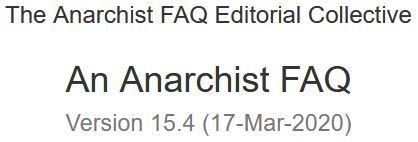
A.2.8 Is it possible to be an anarchist without opposing hierarchy?
No. We have seen that anarchists abhor authoritarianism. But if one is an anti-authoritarian, one must oppose all hierarchical institutions, since they embody the principle of authority. For, as Emma Goldman argued, “it is not only government in the sense of the state which is destructive of every individual value and quality. It is the whole complex authority and institutional domination which strangles life. It is the superstition, myth, pretence, evasions, and subservience which support authority and institutional domination.” [Red Emma Speaks, p. 435] This means that “there is and will always be a need to discover and overcome structures of hierarchy, authority and domination and constraints on freedom: slavery, wage-slavery [i.e. capitalism], racism, sexism, authoritarian schools, etc.” [Noam Chomsky, Language and Politics, p. 364]
Thus the consistent anarchist must oppose hierarchical relationships as well as the state. Whether economic, social or political, to be an anarchist means to oppose hierarchy. The argument for this (if anybody needs one) is as follows:
“All authoritarian institutions are organised as pyramids: the state, the private or public corporation, the army, the police, the church, the university, the hospital: they are all pyramidal structures with a small group of decision-makers at the top and a broad base of people whose decisions are made for them at the bottom. Anarchism does not demand the changing of labels on the layers, it doesn’t want different people on top, it wants us to clamber out from underneath.” [Colin Ward, Anarchy in Action, p. 22]
Hierarchies “share a common feature: they are organised systems of command and obedience” and so anarchists seek “to eliminate hierarchy per se, not simply replace one form of hierarchy with another.” [Bookchin, The Ecology of Freedom, p. 27] A hierarchy is a pyramidally-structured organisation composed of a series of grades, ranks, or offices of increasing power, prestige, and (usually) remuneration. Scholars who have investigated the hierarchical form have found that the two primary principles it embodies are domination and exploitation. For example, in his classic article “What Do Bosses Do?” (Review of Radical Political Economy, Vol. 6, No. 2), a study of the modern factory, Steven Marglin found that the main function of the corporate hierarchy is not greater productive efficiency (as capitalists claim), but greater control over workers, the purpose of such control being more effective exploitation.
Control in a hierarchy is maintained by coercion, that is, by the threat of negative sanctions of one kind or another: physical, economic, psychological, social, etc. Such control, including the repression of dissent and rebellion, therefore necessitates centralisation: a set of power relations in which the greatest control is exercised by the few at the top (particularly the head of the organisation), while those in the middle ranks have much less control and the many at the bottom have virtually none.
Since domination, coercion, and centralisation are essential features of authoritarianism, and as those features are embodied in hierarchies, all hierarchical institutions are authoritarian. Moreover, for anarchists, any organisation marked by hierarchy, centralism and authoritarianism is state-like, or “statist.” And as anarchists oppose both the state and authoritarian relations, anyone who does not seek to dismantle all forms of hierarchy cannot be called an anarchist. This applies to capitalist firms. As Noam Chomsky points out, the structure of the capitalist firm is extremely hierarchical, indeed fascist, in nature:
“a fascist system… [is] absolutist — power goes from top down … the ideal state is top down control with the public essentially following orders.
“Let’s take a look at a corporation… [I]f you look at what they are, power goes strictly top down, from the board of directors to managers to lower managers to ultimately the people on the shop floor, typing messages, and so on. There’s no flow of power or planning from the bottom up. People can disrupt and make suggestions, but the same is true of a slave society. The structure of power is linear, from the top down.” [Keeping the Rabble in Line, p. 237]
David Deleon indicates these similarities between the company and the state well when he writes:
“Most factories are like military dictatorships. Those at the bottom are privates, the supervisors are sergeants, and on up through the hierarchy. The organisation can dictate everything from our clothing and hair style to how we spend a large portion of our lives, during work. It can compel overtime; it can require us to see a company doctor if we have a medical complaint; it can forbid us free time to engage in political activity; it can suppress freedom of speech, press and assembly — it can use ID cards and armed security police, along with closed-circuit TVs to watch us; it can punish dissenters with ‘disciplinary layoffs’ (as GM calls them), or it can fire us. We are forced, by circumstances, to accept much of this, or join the millions of unemployed… In almost every job, we have only the ‘right’ to quit. Major decisions are made at the top and we are expected to obey, whether we work in an ivory tower or a mine shaft.” [“For Democracy Where We Work: A rationale for social self-management”, Reinventing Anarchy, Again, Howard J. Ehrlich (ed.), pp. 193–4]
Thus the consistent anarchist must oppose hierarchy in all its forms, including the capitalist firm. Not to do so is to support archy — which an anarchist, by definition, cannot do. In other words, for anarchists, ”[p]romises to obey, contracts of (wage) slavery, agreements requiring the acceptance of a subordinate status, are all illegitimate because they do restrict and restrain individual autonomy.” [Robert Graham, “The Anarchist Contract, Reinventing Anarchy, Again, Howard J. Ehrlich (ed.), p. 77] Hierarchy, therefore, is against the basic principles which drive anarchism. It denies what makes us human and “divest[s] the personality of its most integral traits; it denies the very notion that the individual is competent to deal not only with the management of his or her personal life but with its most important context: the social context.” [Murray Bookchin, Op. Cit., p. 202]
Some argue that as long as an association is voluntary, whether it has a hierarchical structure is irrelevant. Anarchists disagree. This is for two reasons. Firstly, under capitalism workers are driven by economic necessity to sell their labour (and so liberty) to those who own the means of life. This process re-enforces the economic conditions workers face by creating “massive disparities in wealth … [as] workers… sell their labour to the capitalist at a price which does not reflect its real value.” Therefore:
“To portray the parties to an employment contract, for example, as free and equal to each other is to ignore the serious inequality of bargaining power which exists between the worker and the employer. To then go on to portray the relationship of subordination and exploitation which naturally results as the epitome of freedom is to make a mockery of both individual liberty and social justice.” [Robert Graham, Op. Cit., p. 70]
It is for this reason that anarchists support collective action and organisation: it increases the bargaining power of working people and allows them to assert their autonomy (see section J).
Secondly, if we take the key element as being whether an association is voluntary or not we would have to argue that the current state system must be considered as “anarchy.” In a modern democracy no one forces an individual to live in a specific state. We are free to leave and go somewhere else. By ignoring the hierarchical nature of an association, you can end up supporting organisations based upon the denial of freedom (including capitalist companies, the armed forces, states even) all because they are “voluntary.” As Bob Black argues, ”[t]o demonise state authoritarianism while ignoring identical albeit contract-consecrated subservient arrangements in the large-scale corporations which control the world economy is fetishism at its worst.” [The Libertarian as Conservative, The Abolition of Work and other essays, p. 142] Anarchy is more than being free to pick a master.
Therefore opposition to hierarchy is a key anarchist position, otherwise you just become a “voluntary archist” — which is hardly anarchistic. For more on this see section A.2.14 ( Why is voluntarism not enough?).
Anarchists argue that organisations do not need to be hierarchical, they can be based upon co-operation between equals who manage their own affairs directly. In this way we can do without hierarchical structures (i.e. the delegation of power in the hands of a few). Only when an association is self-managed by its members can it be considered truly anarchistic.
We are sorry to belabour this point, but some capitalist apologists, apparently wanting to appropriate the “anarchist” name because of its association with freedom, have recently claimed that one can be both a capitalist and an anarchist at the same time (as in so-called “anarcho” capitalism). It should now be clear that since capitalism is based on hierarchy (not to mention statism and exploitation), “anarcho”-capitalism is a contradiction in terms. (For more on this, see Section F)
#faq#anarchy faq#revolution#anarchism#daily posts#communism#anti capitalist#anti capitalism#late stage capitalism#organization#grassroots#grass roots#anarchists#libraries#leftism#social issues#economy#economics#climate change#climate crisis#climate#ecology#anarchy works#environmentalism#environment#solarpunk#anti colonialism#mutual aid#cops#police
31 notes
·
View notes
Text
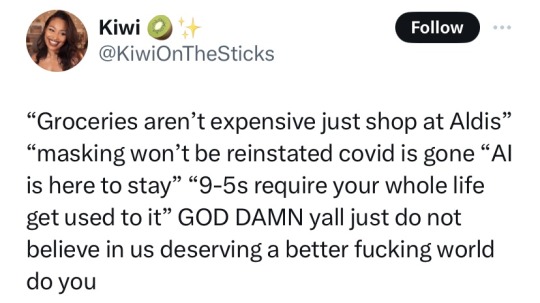
57K notes
·
View notes
Text
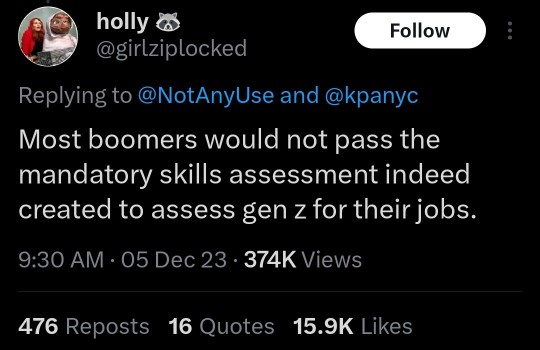

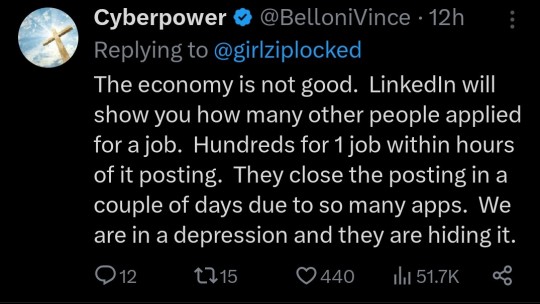

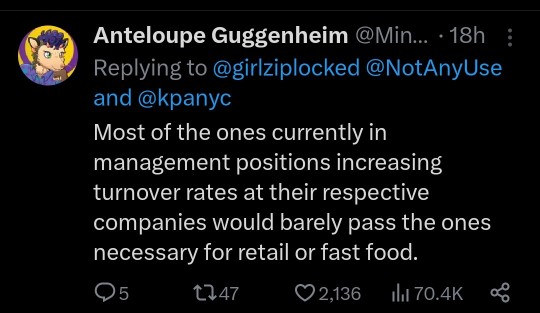
67K notes
·
View notes
Text

#lgbt#lgbtq#lgbtqia#economics#economy#capitalism#politics#twitter#tweets#tweet#meme#memes#funny#lol#humor
72K notes
·
View notes
Text
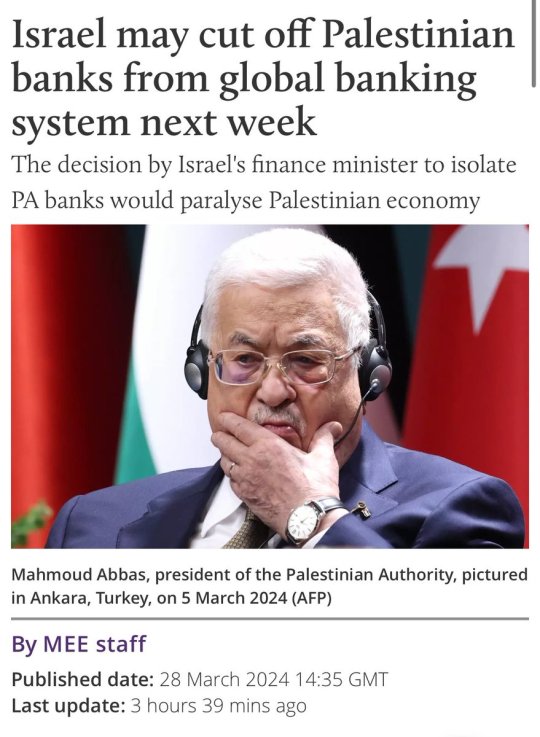

Palestinian banks could be cut off from the Israeli banking system starting next week following a decision by Israel’s finance minister to cease dealings between the two financial institutions, according to a report on Thursday by Israeli newspaper Haaretz.
Israeli Prime Minister Benjamin Netanyahu has two days to convene a cabinet meeting to discuss reversing plans by Finance Minister Bezalel Smotrich to isolate Palestinian banks from both the Israeli and international banking systems.
The Palestinian economy is based on the Israeli currency, the shekel, making it reliant on ties to Israel and its financial dealings with the rest of the world must go through the Bank of Israel and Israeli banks.
We call this Apartheid.
#yemen#jerusalem#tel aviv#current events#palestine#free palestine#gaza#free gaza#news on gaza#palestine news#news update#war news#war on gaza#apartheid#end the occupation#end the apartheid#economy
26K notes
·
View notes
Text

18K notes
·
View notes
Text

#goth#gothic#funny#lol#haha#humor#meme#memes#tweet#twitter#alternative#mental health#introverts#grunge#economy
17K notes
·
View notes
Text
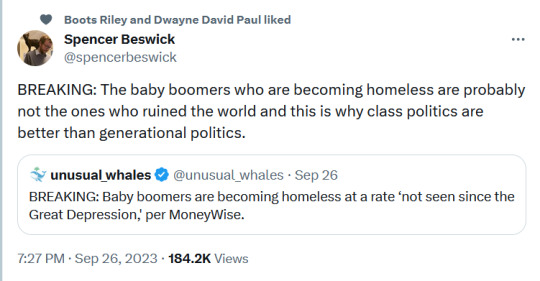
#twitter#tweet#tweets#boomers#economics#economy#homeless#class politics#generational politics#class#inequality#wealth inequality
42K notes
·
View notes
Text

72K notes
·
View notes
Text
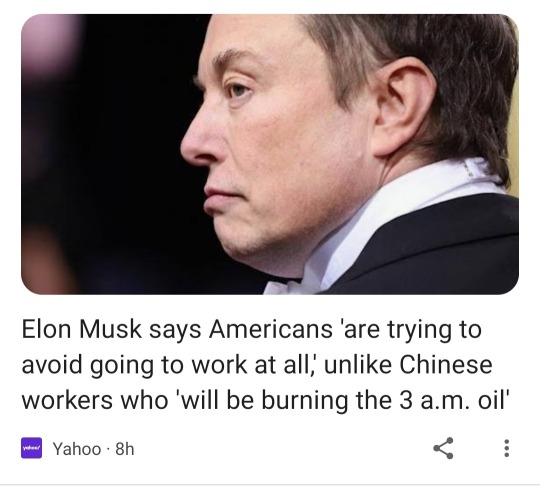
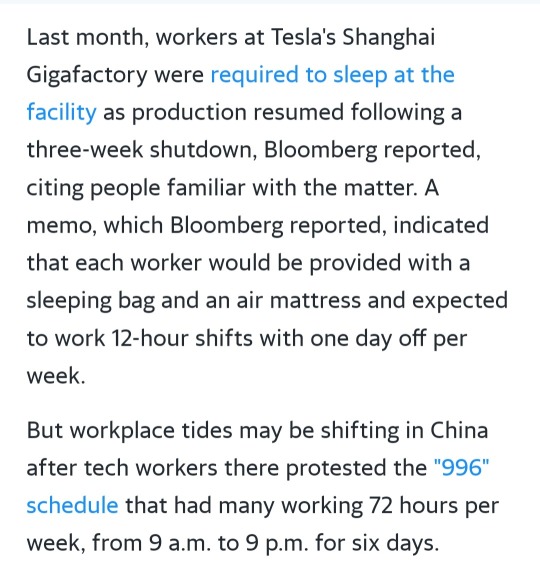
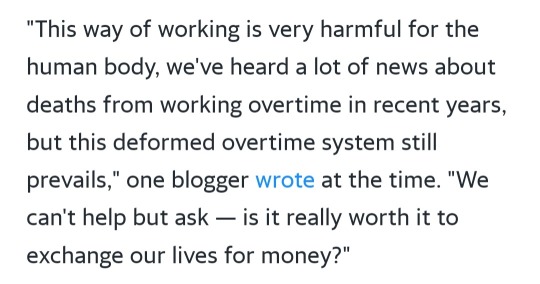
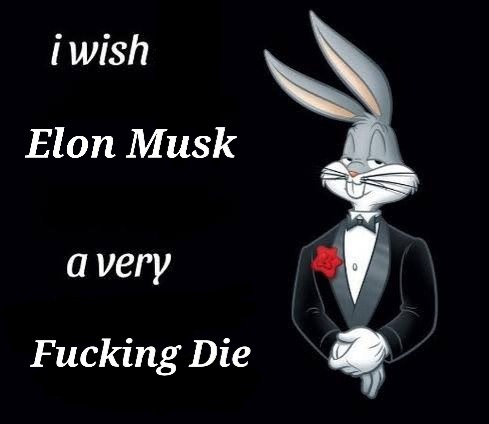
#elon musk#america#china#economy#social justice#late stage capitalism#end stage capitalism#capitalism#monster#scumbag#meme#i wish all meme#politics#tesla#greed#human rights#human rights violations#equality#worker rights#asia#news#world news#twitter
119K notes
·
View notes
Text
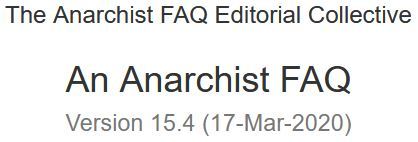
A.2.10 What will abolishing hierarchy mean and achieve?
The creation of a new society based upon libertarian organisations will have an incalculable effect on everyday life. The empowerment of millions of people will transform society in ways we can only guess at now.
However, many consider these forms of organisation as impractical and doomed to failure. To those who say that such confederal, non-authoritarian organisations would produce confusion and disunity, anarchists maintain that the statist, centralised and hierarchical form of organisation produces indifference instead of involvement, heartlessness instead of solidarity, uniformity instead of unity, and privileged elites instead of equality. More importantly, such organisations destroy individual initiative and crush independent action and critical thinking. (For more on hierarchy, see section B.1 — “Why are anarchists against authority and hierarchy?”).
That libertarian organisation can work and is based upon (and promotes) liberty was demonstrated in the Spanish Anarchist movement. Fenner Brockway, Secretary of the British Independent Labour Party, when visiting Barcelona during the 1936 revolution, noted that “the great solidarity that existed among the Anarchists was due to each individual relying on his [sic] own strength and not depending upon leadership… . The organisations must, to be successful, be combined with free-thinking people; not a mass, but free individuals” [quoted by Rudolf Rocker, Anarcho-syndicalism, p. 67f]
As sufficiently indicated already, hierarchical, centralised structures restrict freedom. As Proudhon noted: “the centralist system is all very well as regards size, simplicity and construction: it lacks but one thing — the individual no longer belongs to himself in such a system, he cannot feel his worth, his life, and no account is taken of him at all.” [quoted by Martin Buber, Paths in Utopia, p. 33]
The effects of hierarchy can be seen all around us. It does not work. Hierarchy and authority exist everywhere, in the workplace, at home, in the street. As Bob Black puts it, ”[i]f you spend most of your waking life taking orders or kissing ass, if you get habituated to hierarchy, you will become passive-aggressive, sado-masochistic, servile and stupefied, and you will carry that load into every aspect of the balance of your life.” [“The Libertarian as Conservative,” The Abolition of Work and other essays, pp. 147–8]
This means that the end of hierarchy will mean a massive transformation in everyday life. It will involve the creation of individual-centred organisations within which all can exercise, and so develop, their abilities to the fullest. By involving themselves and participating in the decisions that affect them, their workplace, their community and society, they can ensure the full development of their individual capacities.
With the free participation of all in social life, we would quickly see the end of inequality and injustice. Rather than people existing to make ends meet and being used to increase the wealth and power of the few as under capitalism, the end of hierarchy would see (to quote Kropotkin) “the well-being of all” and it is “high time for the worker to assert his [or her] right to the common inheritance, and to enter into possession of it.” [The Conquest of Bread, p. 35 and p. 44] For only taking possession of the means of life (workplaces, housing, the land, etc.) can ensure “liberty and justice, for liberty and justice are not decreed but are the result of economic independence. They spring from the fact that the individual is able to live without depending on a master, and to enjoy … the product of his [or her] toil.” [Ricardo Flores Magon, Land and Liberty, p. 62] Therefore liberty requires the abolition of capitalist private property rights in favour of “use rights.” (see section B.3 for more details). Ironically, the “abolition of property will free the people from homelessness and nonpossession.” [Max Baginski, “Without Government,” Anarchy! An Anthology of Emma Goldman’s Mother Earth, p. 11] Thus anarchism promises “both requisites of happiness — liberty and wealth.” In anarchy, “mankind will live in freedom and in comfort.” [Benjamin Tucker, Why I am an Anarchist, p. 135 and p. 136]
Only self-determination and free agreement on every level of society can develop the responsibility, initiative, intellect and solidarity of individuals and society as a whole. Only anarchist organisation allows the vast talent which exists within humanity to be accessed and used, enriching society by the very process of enriching and developing the individual. Only by involving everyone in the process of thinking, planning, co-ordinating and implementing the decisions that affect them can freedom blossom and individuality be fully developed and protected. Anarchy will release the creativity and talent of the mass of people enslaved by hierarchy.
Anarchy will even be of benefit for those who are said to benefit from capitalism and its authority relations. Anarchists “maintain that both rulers and ruled are spoiled by authority; both exploiters and exploited are spoiled by exploitation.” [Peter Kropotkin, Act for Yourselves, p. 83] This is because ”[i]n any hierarchical relationship the dominator as well as the submissive pays his dues. The price paid for the ‘glory of command’ is indeed heavy. Every tyrant resents his duties. He is relegated to drag the dead weight of the dormant creative potential of the submissive all along the road of his hierarchical excursion.” [For Ourselves, The Right to Be Greedy, Thesis 95]
#faq#anarchy faq#revolution#anarchism#daily posts#communism#anti capitalist#anti capitalism#late stage capitalism#organization#grassroots#grass roots#anarchists#libraries#leftism#social issues#economy#economics#climate change#climate crisis#climate#ecology#anarchy works#environmentalism#environment#solarpunk#anti colonialism#mutual aid#cops#police
17 notes
·
View notes
Text
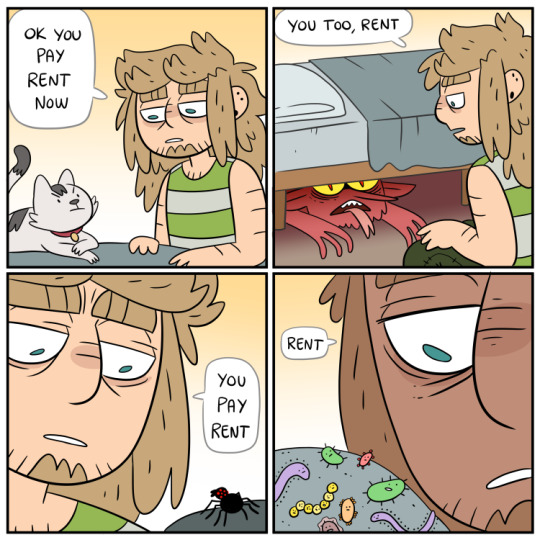
The economy, man.
2K notes
·
View notes
Text
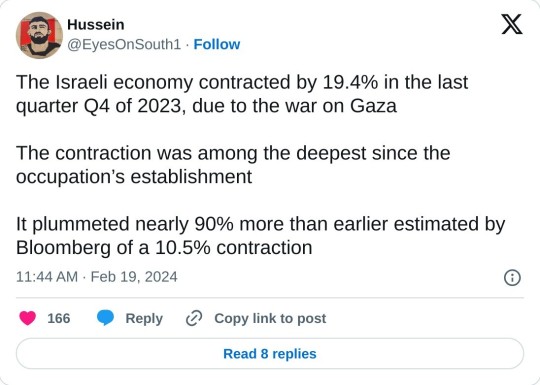
The economy in the fourth quarter was impacted by a 26.9% drop in private spending - the main growth driver - an 18.3% fall in exports and 67.8% slide in investment in fixed assets, especially in residential building.
Government spending, mainly on war expenses and compensating businesses an
#yemen#jerusalem#tel aviv#current events#palestine#free palestine#gaza#free gaza#news on gaza#palestine news#news update#war news#war on gaza#bds movement#economy
8K notes
·
View notes
